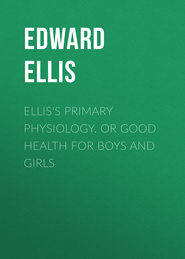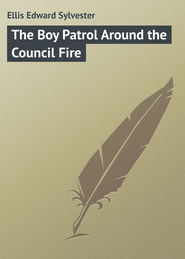По всем вопросам обращайтесь на: info@litportal.ru
(©) 2003-2024.
✖
Across Texas
Настройки чтения
Размер шрифта
Высота строк
Поля
They spent one night and a portion of a day in Austin, visiting the capitol and strolling through the city, which contains many fine buildings of white marble-like stone, peculiar to the vicinity. In the capitol they saw several fine paintings of the early heroes of Texas. On the cenotaph (since destroyed by the burning of the capitol), was the inscription to the memory of the defenders of the Alamo, which is one of the most striking tributes ever conceived by man: “THERMOPYLÆ HAD ITS MESSENGER OF DEFEAT: THE ALAMO HAD NONE.”
The railway line to San Antonio had recently been finished, and they arrived in that quaint old town as night was closing in. A bright moon was shining in an unclouded sky, and, after registering at the Menger House, facing the Plaza, they strolled through the city and enjoyed a view of the Alamo by moonlight. The brown adobe walls were softened in the mild radiance, and, as Nick described the defence made by the garrison of less than two hundred men against four thousand Mexicans under Santa Anna, it seemed to Herbert that he was witnessing that tremendous fight, which continued for eleven days, until only a dozen grimy, panting, and exhausted defenders were left. The terrible Colonel Bowie was shot in his sick bed, and Davy Crockett was among the handful that at last surrendered, under the promise of honorable treatment, but were treacherously massacred by Santa Anna.
The winding Colorado was impressively beautiful in the moonlight, and the adobe mission houses, which were visited the next day, were viewed with the interest that all tourists feel when they first look upon them. Each was over a century old. One, in a fine state of preservation, was pointed out, where the Jesuit fathers were besieged by the Comanche Indians for nearly two years.
Among the curiosities noticed in San Antonio were the Mexican dogs, without a hair on their bodies, and the other canines, known as “tramps” or “nobody’s dogs,” who roam over the country between the city and the Rio Grande, picking up their food, as do their biped brothers, and confessing to the ownership of no one. That portion of San Antonio called Mexico was squalid, and made up of old residents, many of whom cannot speak a word of English, while in other sections nearly everyone understands English, Spanish, and German.
The boys stayed several days in this city, for they looked upon it as their real starting point or entrance into the great southwest. They had talked over the question while on their way thither, and agreed upon the line to be followed. Herbert had a letter of recommendation to Mr. Lord, a banker, by which he could secure all the funds needed, and who showed a wish to help him in every way in his power.
He invited the boys to visit him at his house, where they spent an evening with the gentleman, who, having been a resident in Texas from a date several years before the Civil War, was able to give the very knowledge and counsel they needed. He told them a fact that they had not noticed. San Antonio itself is a resort for invalids threatened with, or suffering from, pulmonary weakness, who find the mild, equable climate very helpful. He had known of cases in which it had wrought a complete cure.
“But I see,” he said with a smile, “that that doesn’t suit your ideas; while there are many sights here that you have not seen – such as the Colorado Springs – yet you could not content yourselves in our sleepy town for more than a day or two longer. You can take the stage from here to El Paso, but the ride is tiresome, and, at this season of the year, dusty and trying to a degree.”
“I don’t think we should fancy that,” said Nick, who refrained from giving a hint of the plan they had formed.
“I suppose you are both good horsemen?” was the inquiring remark of the banker.
They answered that they were fairly good riders. Nick had learned to ride horses almost as soon as he could walk, and Herbert had taken instructions at an academy in New York for a couple of years past.
“Everybody rides a horse or burro in Texas,” said Mr. Lord, “and the only caution you need is to make sure you possess a clear title to the animal you throw your leg over. There are few people hanged in Texas for murder, but plenty are strung up every year for horse-stealing. You would be objects of suspicion if you should take a walk out in the country. My advice, then, is to buy three excellent ponies, provide yourselves with a good outfit, including a fine repeating Winchester rifle and a revolver apiece, with plenty of ammunition. You will need an extra animal to carry your luggage. Then strike out for New Mexico. You will have to ride a clean five hundred miles before crossing the boundary, but it is the right season of the year, and the ride will do you good.”
“Do you advise us to go alone?” asked Herbert.
“By no means; you must have companions who are familiar with the country, and they can be easily secured.”
“How?”
“There are hunters, miners, prospectors, and adventurers in San Antonio all the time, who have either just come from the wild regions beyond or are about to set out for them. They may be rough in their ways, but they are generally honest and trustworthy, and there will be no trouble in engaging them as companions.”
“You have laid out the plan Herbert and I had fixed upon, but we felt doubts about being able to carry it out. We have informed ourselves, so far as we can, concerning the country over which we wish to ride, and the more we learned, the more we saw the need of having men who were familiar with it. How about the Indians?”
“Well, you are liable to meet them, but I do not think there is much to be feared, as I have heard no disquieting rumors lately, though,” added the banker significantly, “I was shot at myself, within the present year, by a party of marauding Comanches, within six miles of San Antonio. When you get into New Mexico, you will be likely to find matters more lively.”
“Can you help us in engaging the right parties?”
“I think so; call around at my office to-morrow afternoon, when I am quite sure I will be able to put you on the track of the ones whom you ought to meet.”
The lads assured their host that they would be glad to do so, and, declining his kind invitation to spend the night at his home, bade him good-evening and started on their return to the Menger House.
CHAPTER III.
IN SAN ANTONIO
NICK and Herbert stopped on the Plaza to inspect a bear, which a lank Texan had fastened to a staple by a rope, and was waiting thus late at night for a purchaser. The moment the boys passed, the owner began urging them to buy, offering the brute for fifteen dollars, and dwelling with much eloquence on the great bargain it was for anyone.
Our friends, however, had no use for any animals of that species, and, taking care to keep beyond reach of the beast, who showed a desire for closer acquaintance, they sauntered toward the hotel.
Just before reaching it, someone touched Nick’s arm in such a timid manner that he turned, wondering what it could mean.
A lad about twelve years of age, ragged and the picture of distress, asked in a tremulous voice:
“Please, sir, you’re from the North, aint you?”
“Yes,” replied Nick; “is your home there?”
“Yes, sir,” said the lad, swallowing a lump in his throat, “and I would give the world, if I had it, if I was back there again.”
“How is it you’re here?”
“Me and Dick Harrison run away from home; we lived in Philadelphia, and we haven’t had anything to eat since yesterday.”
“Where is Dick?”
“He’s off yonder, on the other side of the Plaza; he’s just dead broke up, and says he won’t try nothin’ more, but is goin’ to lay down and die.”
“I don’t believe anyone has ever died of starvation in San Antonio; can’t you get work?”
“We have been trying for two weeks; we got a job or two that fetched us a little to eat, but we can’t do nothin’ more.”
“Take us over to where Dick is,” said Herbert, whose heart was touched, “and let us see him.”
“Come on,” said the boy, so cheerfully that Nick and his friend were satisfied he was telling the truth. On the way across the Plaza, they questioned Fred Beekman, as he gave his name, still further.
“What made you run away from home, Fred?”
“Me and Dick started out to kill Injins and grizzly bears.”
“How did you make out,” asked Herbert, who recalled that it was not so long since he had indulged in similar ambitious ideas.
“We haven’t killed any yet,” replied Fred, in such a doleful voice that the others could not help smiling.
“How did you get the money to come to Texas?”
“Dick and me stole it from our folks; we bought rifles and pistols, but when we got to Texarkana we was took up and the guns took away from us; we managed to sneak off, and had enough money left to come to Santone; here it give out, and we’ve had it hard since.”
“Had you pleasant homes?” asked Nick.
This question set Fred to crying. His fingers were in his eyes, and he stumbled along for several paces before he could answer:
“Nobody ever had better homes, but we got it into our heads that it would be nice to shoot grizzly bears and Injins, and here we are. If we only had enough money to keep us from starvin’ we could walk home like reg’lar tramps.”
“You are a good many miles from Philadelphia,” said Nick. “If you could get there, would you go straight home, or would you start off on some other wild-goose chase like this?”
“Oh, if I could see father and mother and my brother and two sisters, I would work and go to school and do anything; I never knowed how good a home I had till I run away, and Dick feels the same way.”
A few minutes later they reached the spot where Dick had been left, but he was nowhere in sight. Fred looked around in wonder, and then became frightened.
“I’ll bet he’s gone and drownded hisself,” he said, in an awed whisper, “for he felt ’nough like it.”











